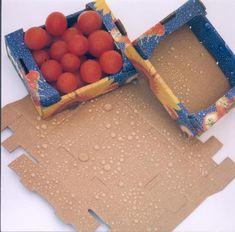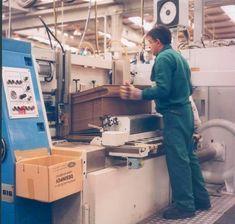

Following an exhaustive laboratory study and several tests with shipping, Plaform has launched a model of corrugated cardboard box for packaging fruits and vegetables.
The box is the product of Project Friopack and guarantees an improvement of up to 40 per cent in the pre-cooling process. This is thanks to the incorporation of a series of openings cut into strategic areas of the box to optimise its system of ventilation without reducing structural strength.
Plaform is a registered brand name of agricultural packaging manufactured in Spain. It is currently one of the systems most widely used in the Spanish market for corrugated cardboard boxes for the packaging of fruits and vegetables.
The box is the result of in-depth r&d that included the participation of experts from Plaform's technical committee, the packaging, packing, and transport technology institute of Valencia, and Anecoop, the leading seller and exporter of Spanish fruit and vegetable products.
“The results of the laboratory tests were very satisfactory. The improvements facilitate air circulation and optimise shipping and conservation conditions,” said Juan Antonio Mendicote, member of Plaform's technical committee. “The new design saves time in pre-cooling and results in considerable savings on the electric bill. The possibility of increasing the quantity of product that can be cooled in a day is especially important during peak times in campaigns.”
The comparison between the pre-cooling times of products packaged in traditional boxes and in the new boxes reveals a significant difference, which reaches 40 per cent in the case of a 6kg pack of tomatoes. These results are based on tests performed in forced ventilation refrigerators as well as in conventional refrigerators. Also, a series of tests under transport conditions confirmed that the packaging maintains the same strength parameters and responds perfectly to the additional requirements involved in highway transport.
Plaform has been certified to guarantee compliance with the standard UNE EN 13428. The application of this European standard in support of the environment is essential, since it ensures the reduction of waste at the product's point of origin, as stipulated in Directive 94/62 CE on packaging and packaging waste.
In addition to questions regarding the recovery and recycling of packaging, European Directive 94/62 underscores the importance of orienting packaging production according to the philosophy of prevention at the origin, a key perspective to minimise the environmental impact of package waste.
In this context, prevention means reducing the production of waste at the point of origin as much as possible. But the objective of prevention goes further by including the use of raw materials and the preparation of packaging from the moment it is manufactured, with a view to recycling. In the case of Plaform boxes, this objective is clearly fulfilled thanks to its high content of virgin fibre, this packaging is an excellent raw material for the manufacturing of high quality recycled paper.
To put this objective into practice, the European standard UNE EN 13428 sets the specific requirements which packages and packaging must comply with in terms of product composition and the manufacturing process. This standard has been published in the Official Journal of the European Communities (OJ), which means that it has been harmonised.
To certify that Plaform packaging complies with UNE EN 13428, the product has been subjected to an extensive and exhaustive study. The study analyses 10 requirements that the packaging must comply with regarding design, materials, weight, volume etc, which are called functional criteria.
The analysis also identifies the critical points that are necessary to optimise the use of materials and to prevent oversized packaging. The final goal is to guarantee that the manufacturing process makes rational use of raw materials and avoids the waste of natural resources.
The result of all of this is that compliance with this standard is an essential method in the fight for the environment from the manufacturing process itself. It has also become a key factor in market competitiveness, because the evaluation criteria that it includes are values that are increasingly demanded by Plaform's European customers.



